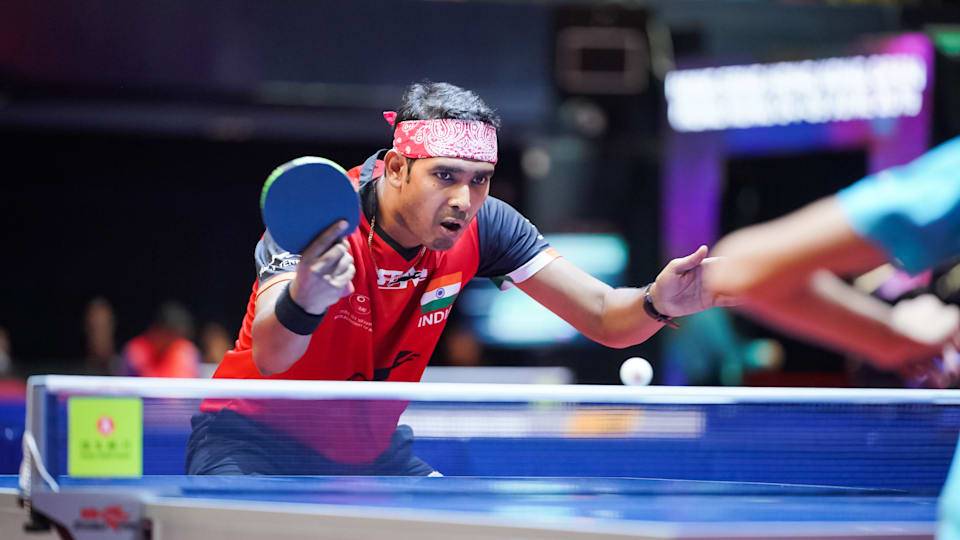Sharath Kamal keeps on driving to stop the rust
The paddler felt that athletes had to continuously work on their body in order to keep it running like a well-oiled machine.

Achanta Sharath Kamal has been driving Indian table tennis on the global stage for well over a decade.
The journey, which started with his twin golds at the 2006 Commonwealth Games, was still going steady in March 2020, where Achanta Sharath Kamal won the Oman Open singles title and rose to a career-best rank of 30.
The Indian table tennis star shows no sign of letting up at the age of 38, and when asked how he manages to maintain his fitness so well, Achanta Sharath Kamal had a very interesting analogy.
“The sportsperson's body is like a sports car. The moment you stop taking care of it, it gets rusty and doesn't perform,” he stated in an interview with news portal WION.
“I have been taking an annual one month break for the last 3-4 years. At my age, I think it is important to take a mental and physical break and it also allows me to spend some time with my family.
“I try to unwind during that period and come back with a fresh mentality.”
While he has had more than his usual one-month break this year, the process he follows works well for him to mount a challenge at the Tokyo Olympics.
The value of experience
The first few months of the original Olympic year saw Achanta Sharath Kamal on song.
The Chennai-based paddler had won silver in the men’s doubles at the Hungarian Open along with compatriot Sathiyan Gnanasekaran and had broken into the doubles top-20 as a result.
He had also travelled for the Oman Open against his family’s wishes in order to build match momentum in time for the Olympic qualifiers, which were scheduled for April.
Now that the situation is different, Achanta Sharath Kamal felt that it would take a couple of months for him to regain match fitness.
However, he is also confident in his knowledge of what to work on and it was an approach also espoused by Rohan Bopanna.
“The advantage that I have, being an experienced player, is that I know what parts of my game I will work on once I return,” he explained.
“Mostly, I will look to sharpen my strengths rather than work on my weaknesses.”
